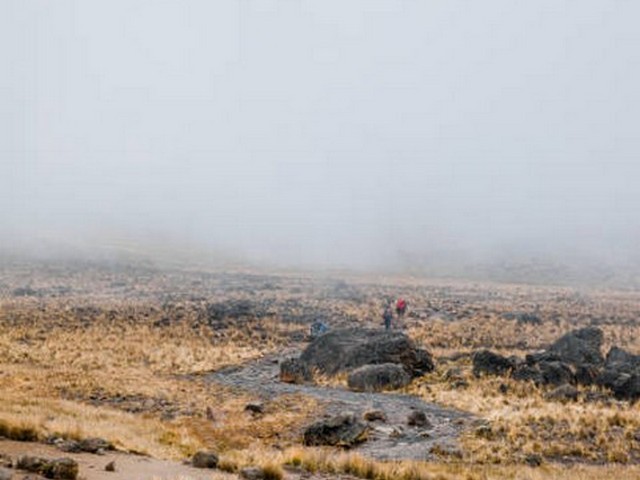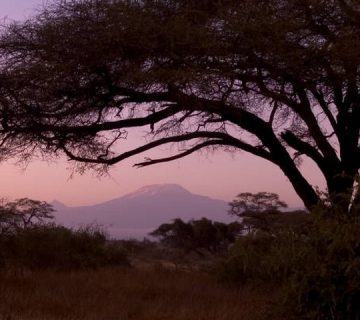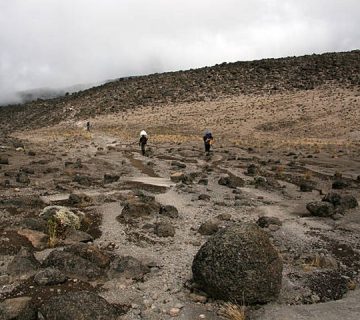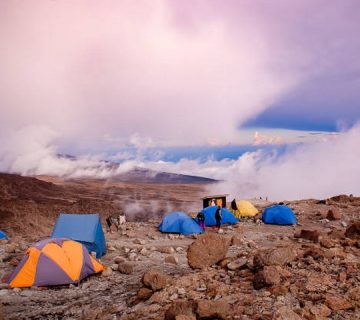What Medical Precautions To Take Before Climbing Kilimanjaro
Climbing Mount Kilimanjaro, the roof of Africa, is a dream for many adventurers worldwide. However, as thrilling as it sounds, the journey to Uhuru Peak isn’t just about physical endurance; it’s equally about medical preparedness. At Kilimanjaro Centre for Trekking and Ecotourism (KCTE), we are committed to ensuring that every climber is well-equipped, not just with gear, but also with the right health precautions to make this adventure both safe and memorable.
Understanding the Medical Risks
Before you lace up your hiking boots, understanding the medical risks associated with high-altitude trekking is crucial. As you ascend towards the 5,895 meters (19,341 feet) summit, the air gets thinner, temperatures can swing, and your body starts to react differently.
Altitude Sickness
One of the primary concerns is altitude sickness, which can affect anyone, regardless of fitness level. Symptoms range from headaches and dizziness to more severe forms like Acute Mountain Sickness (AMS), High Altitude Pulmonary Edema (HAPE), and High Altitude Cerebral Edema (HACE).
Physical Strain
The physical strain due to prolonged walking and climbing can also aggravate pre-existing conditions such as heart problems or asthma.
So, how do you prepare medically to face these challenges? Let’s dive in.
Pre-Climb Medical Consultation
Check-Up and Vaccinations
First things first, schedule a visit to your doctor. Discuss your plans to climb Kilimanjaro and ensure your vaccinations are up to date. This includes routine vaccines along with travel-specific shots like Yellow Fever, Hepatitis A, and Typhoid.
Assess Fitness Levels
It’s also vital to assess your physical fitness. While Kilimanjaro is climbable without technical skills, the trek is physically demanding. Your doctor can perform a cardiovascular evaluation to ensure your heart is in good shape for the climb.
Discuss Altitude Medications
Discuss medications with your doctor. Drugs like Acetazolamide can help prevent altitude sickness. However, they must be taken under medical guidance.
Fitness Preparation
Cardiovascular and Strength Training
Start a fitness regime months before your climb. Focus on cardiovascular workouts and strength training. Stamina and endurance will be your best allies on the mountain.
Practice Hikes
Engage in practice hikes to simulate Kilimanjaro’s conditions. These not only improve physical fitness but also mentally prepare you for what’s to come.
Dietary Considerations
Hydration
Hydration is your best defense against altitude sickness. Begin increasing your water intake weeks before the climb.
Balanced Diet
Eat a balanced diet rich in carbohydrates, proteins, and essential fats. Nutrient-rich foods will bolster your energy reserves and help your body cope with the physical demands of climbing.
Mental Preparation
Understand the Trek
Familiarize yourself with the trek’s challenges. Understanding what to expect reduces anxiety and boosts confidence.
Stress Management
Learn stress management techniques such as meditation or breathing exercises. A calm mind can greatly influence your body’s reaction to stress and altitude.
On the Mountain: Listen to Your Body
Pace Yourself
Climbing Kilimanjaro is not a race. It’s essential to pace yourself and listen to your body. If you feel unwell, inform your guide immediately.
Regular Health Checks
Our guides at KCTE are trained to conduct regular health checks to monitor for symptoms of altitude sickness and other health issues.
Know When to Turn Back
The summit is only half the journey. Your safety is paramount. If your health is at risk, it’s crucial to make the tough decision to turn back.
Why Choose KCTE for Your Kilimanjaro Adventure?
At Kilimanjaro Centre for Trekking and Ecotourism, we pride ourselves on putting your safety first. Our expert guides are well-versed in emergency first aid and altitude sickness management. We ensure that your journey to the summit is conducted with the highest standards of safety and comfort.
FAQs About Climbing Kilimanjaro
Q1: How long does it take to acclimate before attempting Kilimanjaro?
Acclimatization varies, but we recommend at least one day of rest at base camp and choosing a longer route for gradual acclimatization.
Q2: What is the best time of year to climb Kilimanjaro?
The best times are during the dry seasons, from June to October and from December to March.
Q3: Can children climb Kilimanjaro?
Yes, children from the age of 10 are allowed to climb Kilimanjaro. However, it’s crucial they undergo thorough medical evaluation and preparation.
Q4: What should I carry in my first aid kit?
Your kit should include medication for altitude sickness, painkillers, bandages, antiseptic wipes, and any personal medication.
Q5: Are there rescue services available on Kilimanjaro?
Yes, Kilimanjaro National Park offers rescue services, and at KCTE, we have additional safety measures and communication equipment for emergencies.
Ready for the Climb of Your Life?
Climbing Kilimanjaro is an exhilarating experience that requires careful medical and physical preparation. By taking the right precautions and choosing a dedicated and experienced operator like Kilimanjaro Centre for Trekking and Ecotourism (KCTE), you’re setting yourself up for a successful and inspiring trek to the summit of Africa. Join us, and let’s turn your dream of conquering Kilimanjaro into a reality. Book your adventure today and take your first step towards a journey you’ll never forget.




